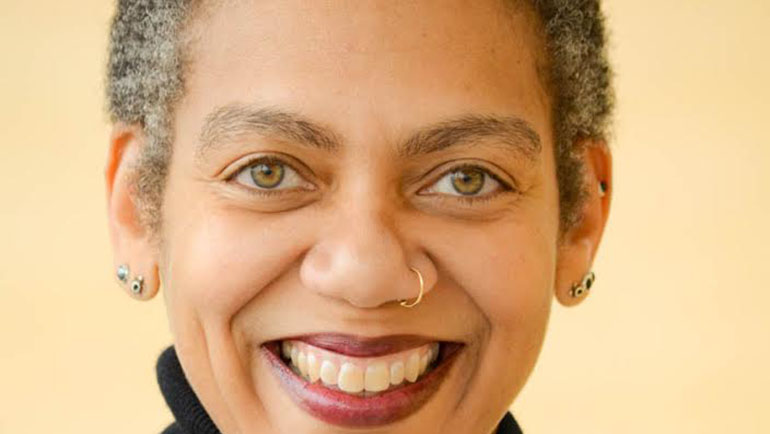
A number of influences tugged at Rhonda Y. Williams, Ph.D., last year as she weighed whether to apply for a position at Wayne State University. From academic peers who urged her to join the faculty to the prospect of reuniting with family members who call Detroit home, Williams faced an array of considerations.
One that significantly swayed her was the late Detroit mayor Coleman A. Young — or, more accurately, his legacy.
“I took another look at the job posting and said, ‘Coleman A. Young: Detroit iconoclast, civil right activist, social justice guy,’” Williams recalled. “It was the energy, the career, the kinds of things Coleman Young stood up for — the idea that African Americans and labor deserved equality, that people deserved to have resources to live, that white supremacy was not to be dealt with passively, that racial inequality had to be challenged. Those things spoke to me.”
Fittingly, Williams will join the Wayne State faculty next fall as the Coleman A. Young Endowed Chair in the Department of African American Studies, where she plans to focus on humanistic research and on developing working relationships with Detroit’s formidable activist community to help further social justice causes.
“I did some serious introspection about whether this opportunity is a fit for me,” Williams said. “I asked myself: Is this a move I want to make? What kind of relationships will I have? What kind of things can I contribute when I get there? How will I make good use of the things I'm excited about around social justice? Also, I’ve thought about wellness as part of social justice movements, about how that has shown up or has not shown up. What kind of support systems exist or don't exist today? All of those things came together to kind of create this excitement and energy around being at Wayne State.”
Ollie Johnson, Ph.D., chairperson of the Department of African American Studies, said he and others are excited about Williams’ impending arrival.
“Professor Rhonda Williams is one of the great scholar-activists in the country,” Johnson said. “Her presence at Wayne State helps us take the university to the next level. She is a truly outstanding researcher, teacher and administrator."
Williams, a Baltimore native, said she had already made some local connections that she’s eager to re-establish and is eager to forge new ones. “I’m looking forward to building connections,” Williams said. “To being in the community, building bridges with the community and listening to what the community is doing — as opposed to saying, ‘Hey, I'm here. This is what we going to do.’”
Williams said she would also like to help bridge the ideas of wellness and social justice activism. “We can burn out quick,” Williams noted. “We can have internal conflicts just as we have the external dynamics that we're struggling with. Additionally, there are our own levels of known and unknown traumas or any number of other things ... Where's the space for understanding how that fits with social movements and being more proactive?”
Williams recalled the essence of a conversation with famed poet and Black arts icon Sonia Sanchez, who powerfully braided together the ideas of wellness and activism. “I was at the Social Justice Institute at Case Western Reserve University, and we invited Sonia Sanchez as a keynote speaker. And one of the things she said to our group was that her generation was out there in the struggle. They were marching. They were doing poetry, letting it lay out there. But they also had moments where they just had some fun, where they got together, and they rested and chatted and listened to music. That helped sustain, spur and invigorate the struggle.”
Having started teaching in 1997, a year before she earned her Ph.D., Williams has been steeped in both academia and activism for decades. She has authored two books, the award-winning The Politics of Public Housing: Black Women's Struggles against Urban Inequality (2004) and Concrete Demands: The Search for Black Power in the 20th Century (2015). She also co-edits the book series “Justice, Power, and Politics” at the University of North Carolina Press and is co-editor of Teaching the American Civil Rights Movement.
Before taking her position as the inaugural John L. Seigenthaler Chair in American History at Vanderbilt, the researcher known affectionately as “Dr. Rhonda” worked at Case Western Reserve University in Ohio, where she established and directed the Postdoctoral Fellowship in African American Studies, and founded and directed the university-wide Social Justice Institute. Williams engaged in numerous community efforts as a resident of Cleveland, including on police and criminal justice reform as a member of the Collaborative for a Safe, Fair, and Just Cleveland and the “Cleveland 8,” and as a co-chair and commissioner on the Cleveland Community Police Commission.
Williams said she looks forward to the opportunity to engage in equally meaningful work in Detroit, to teach students the importance of getting involved and to help foster new approaches to the current social justice struggle.
“I’m so excited about what that could look like in terms of teaching and having students in the community,” Williams said. “There are different ways to engage. There are activist scholars, scholar activists, people who may not even show up at a march. There is more involved in social justice work than just showing up at a rally, though protest is definitely important, even essential. There are people organizing. They’re doing research. And they’re putting forth ideas and policies. We need it all.”
